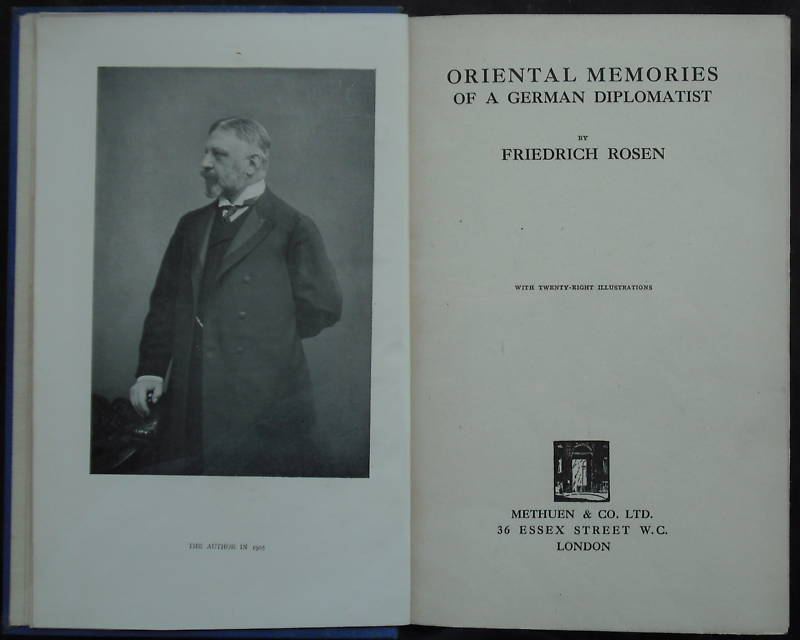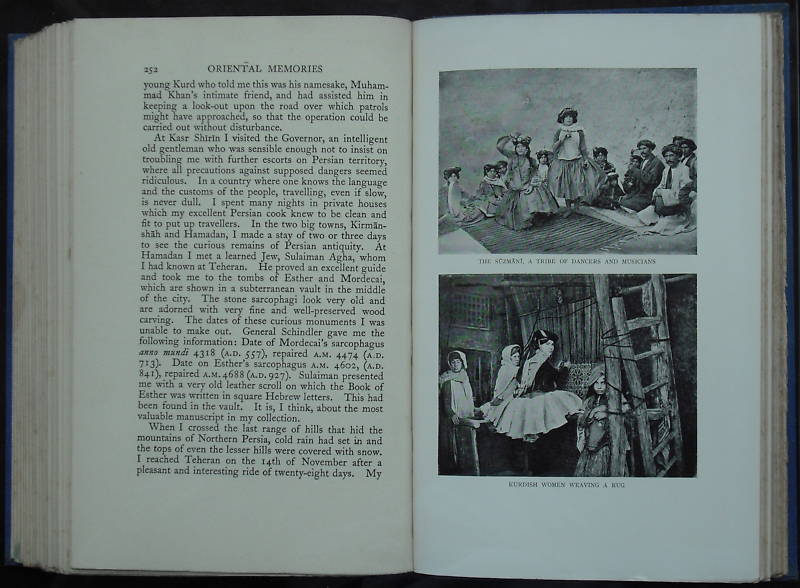
Friedrich Rosen
(1856 - 1935)
Home †|††DestpÍk††|††Ana Sayfa
Oriental Memories

About this Book
ďOriental memoriesĒ is Rosenís account of his life, travels††and diplomatic experiences in Kurdistan, Persia, Syria and Baghdad in the early years of the C20th.
Much on travel in Persia, some on horseback, social life in Jerusalem, Kurdistan and Baghdad at the time of the building of the Baghdad railway.

About the Author††††††††Friedrich Rosen (1856 - 1935)
Friedrich Rosen was a German Orientalist, diplomat and politician.
Friedrich Rosen spent many years of his childhood in Jerusalem, where his father was consul (1852-1867). Rosen grew up in Jerusalem in a multilingual environment.
Friedrich Rosen had a fondness for oriental literature and popular cultures. During the mission to Ethiopia, he developed a particular interest in Somali oral poetry. Friedrich Rosen writes briefly on it in Felix Rosenís travel account. He was, however, first and foremost an applied orientalist.
In 1887 he began to teach Persian and Urdu (Hindustani) at the newly-established Seminary for Oriental Languages in Berlin. In 1890 he joined the consular section of the diplomatic service in 1890. Rosen worked for the general consulate in Beirut and for the German legation in Teheran. In 1898 he opened a consulate in Baghdad.
Following the journey of Emperor William II (1898) to Jerusalem, Rosen is appointed consul there. At the end of 1900, he is assigned to the political department of the Foreign Office as a specialist on the Middle East. In autumn 1904, Rosen is called to lead the German delegation to Addis Ababa. On his way back home he receives the message that he has been appointed the new German legate in Tangier.
During the First World War, Rosen disagrees with the adventurous policy of the German Empire that plans to recruit jihadist (holy war) movements in the Islamic world as allies of the German cause.
In May 1921, Rosen becomes German Foreign Minister. After the conclusion of a peace treaty with the United States (August 1921), Rosen leaves public service. From now on he concentrates on academic work and translations.
Up to 1934 he became the head of the German Orientalist Society††Rosenís most popular translation is a German version of Omar Khayyamís Rubayyat.
Friedrich Rosen died in Peking in 1935.

Foundation For Kurdish Library & Museum